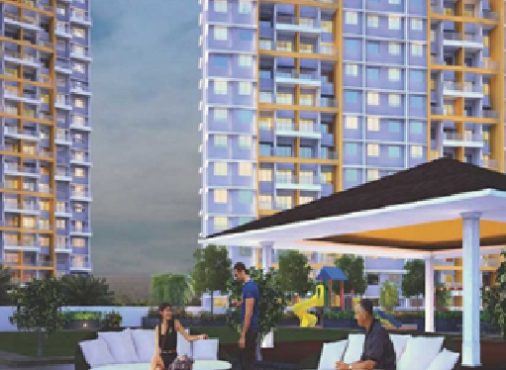Investing in premium real estate is the best way to get luxury, exclusivity and financial growth. This high-end segment caters to those seeking elegant living spaces and opportunities for long-term wealth creation.
For NRIs, it offers the dual advantage of owning luxury properties in their homeland while enjoying investment benefits. This blog post guides investors on effectively evaluating the value of premium real estate.
What is Premium Real Estate?
Premium real estate is a niche segment in the property market that offers luxury and lifestyle. These properties are not just about large spaces or lavish interiors; they also have thoughtful design, strategic location and world-class amenities.
Meaning of Premium Real Estate
Premium real estate is defined by its ability to fulfil the aspirations of high-end buyers. Unlike regular properties, these homes are designed to deliver a lifestyle experience that combines exclusivity and functionality. Key features of premium real estate are:
- Luxury Features: High-end materials, bespoke designs and latest appliances.
- Prime Locations: In prime locations or neighbourhoods with scenic views and good connectivity.
- Customised Amenities: Private pools, clubhouses, fitness centres and concierge services.
- Design: Thoughtfully designed layouts that maximise natural light, ventilation and comfort.
Why Valuation Matters?
Valuing premium real estate is more than just the price tag. It’s about its potential to appreciate over time, the lifestyle it offers and how it compares to other properties in the market. A correct valuation will help investors pay the right price and get a property that matches their financial goals.
What Affects Property Value?
The value of a luxury property is influenced by many things, from economic conditions to local developments. Knowing these will help you forecast the market and make better decisions.
Read Also: How RERA Safeguards Luxury Real Estate Investments for NRIs
Factors Affecting Real Estate Value
Assessing a property requires knowing the bigger picture and the property itself.
Economic Indicators and Market Trends
- Macro-Economic Factors: A growing GDP and low inflation are good for luxury property. An economic downturn is bad.
- Interest Rates: Lower interest rates mean people can borrow more funds, resulting in higher demand for luxury properties.
- Luxury Market Sentiments: HNIs’ preferences shape demand and pricing for luxury properties.
Infrastructure
Luxury property value is boosted by the infrastructure around it.
- Transportation Hubs: Metro stations, airports, and major highways nearby add convenience and value.
- Urban Amenities: Properties near schools, hospitals, shopping malls and recreational areas are appreciated faster.
- Smart City Projects: A smart city with advanced infrastructure is a big driver of property appreciation.
Comparison with Other Investments
- Price Resilience: Luxury properties hold their value better during market downturns because of their uniqueness.
- Rental Income: Compared to standard properties, luxury real estate generates higher rental income from corporate clients and expats.
- Appreciation Trends: Luxury properties in high-demand areas appreciate faster and higher.
Read Also: What NRIs Need to Know About Luxury Property Appreciation in India
Evaluating Property Value
Each method provides a unique perspective on a property’s value, helping you gain a comprehensive understanding of its financial aspects.
Market Comparables
- Comparing Properties: Compare the property to recently sold properties in the same area with similar features and amenities.
- Key Points: Look for differences in size, location, and condition to adjust the price.
- Why it’s Important: Comparables help for a reality check to see if the property is priced fairly.
Income Approach
- Rental Income: This method calculates the annual rental income of the property and considers its potential growth over time, providing a reliable basis for estimating future cash flows.
- Net Operating Income (NOI): Calculate total rental income minus operating expenses to get the profitability.
- Capitalisation Rate: Divide NOI by the cap rate to get the property value. This is useful for NRIs looking at properties for rent.
Cost Approach
- Land and Construction Cost: Evaluate the cost of the land and the current market value of constructing a similar property to establish a baseline property valuation.
- Depreciation: Adjust the total value by subtracting the loss in value due to the property’s age, wear and tear, or obsolescence. This ensures an accurate reflection of its current worth.
- Use Case: Ideal for evaluating new developments or properties under construction, where precise cost estimation is crucial for making informed investment decisions.
Appraisals and Inspections
Appraisals and inspections are important to find out hidden defects like structural issues, legal disputes or wrong pricing. These will ensure the property’s value is reflected correctly in the transaction.
Long-term Investment Potential
Premium real estate is not just about short-term gains; it also has long-term potential for appreciation and income.
How are Premium Properties a Long-Term Investment?
Luxury real estate is recession-proof, even during slowdowns, due to its exclusivity and high demand. Here are the reasons why premium properties are a long-term investment:
Historical Appreciation Trends
- Prime Locations: Properties in established or growing areas appreciated over decades.
- Market Demand: Increasing number of HNIs ensures demand for premium properties.
Rental Yield and Occupancy Rates
- Luxury Rentals: High-end apartments cater to a niche yet stable tenant base, ensuring consistent income and often commanding premium rental rates.
- Corporate Tenants: Proximity to business districts ensures higher occupancy for premium properties.
Tax Benefits for NRIs
- Rental Income Deductions: NRIs can claim deductions under Section 24 of the Income Tax Act, 1961, for home loan interest on rented properties.
- Capital Gains Tax Relief: Investing in specified bonds reduces long-term capital gains tax.
- DTAA Benefits: NRIs can avoid double taxation by using the tax treaty between India and their resident country.
Legal Considerations for NRIs
Indian real estate laws are crucial for NRIs to ensure smooth property transactions. Understanding property laws and documentation requirements can help avoid delays or legal issues.
Applicable Laws
- NRIs can buy residential or commercial properties but need RBI approval for agricultural land or farmhouses.
- Properties should be RERA compliant to avoid delays in project completion or fraud in financial transactions and property documentation.
Documentation
- Some of the mandatory documents for property purchase are a PAN card, passport, OCI/PIO card, proof of funds, and sale agreement.
- Check ownership history and ensure the property is free of litigation before buying it.
Role of Lawyers
- Experts can advise on FEMA compliance.
- Lawyers can help draft and review agreements to protect the buyer’s interests, including safeguarding legal rights and ensuring compliance with applicable laws.
Financing Options for NRIs
NRIs have multiple financing options to invest in premium real estate, offering flexibility and benefits. Selecting the right financing option significantly impacts overall returns on investment.
Mortgage for NRIs
A mortgage is a financial tool that enables NRIs to borrow up to 80% of the property value to finance real estate purchases. Eligibility criteria typically include providing proof of income, maintaining a strong credit history, and demonstrating stable employment status.
Benefits
Mortgages provide NRIs with the advantage of maintaining liquidity, as they can purchase property without tying up all their funds. Additionally, currency fluctuations can work to their benefit, as they might gain from favourable exchange rates when converting foreign income to repay loans. Loan repayments can be done in Indian currency, which often helps reduce transaction and currency conversion costs.
Repatriation and Currency
Repatriation of funds, including income from property sales or rental earnings, is governed by FEMA (Foreign Exchange Management Act) norms, ensuring compliance and transparency in transactions. NRIs can repatriate funds back to their home country after paying applicable taxes, simplifying the management and optimisation of their global asset portfolios.
Conclusion
Investing in premium real estate is a way to own an asset that is luxurious, exclusive and offers long-term wealth. By understanding the true value of these properties, investors can make informed decisions that align with their goals and aspirations.
Rustomjee presents a handpicked selection of high-end properties that meet the highest standards of luxury and practicality. Explore Rustomjee properties today and upgrade your investment portfolio with the best in luxury real estate.
FAQs
- What’s the difference between premium and standard properties?
Premium properties are defined by luxury features, prime locations and world-class amenities. Unlike standard properties, it has a better long-term appreciation, higher rental yields and a lifestyle like no other.
- Can NRIs invest in premium real estate?
Yes, NRIs can invest in premium real estate to earn rental income, enjoy tax benefits, and repatriate sale proceeds by following RBI guidelines. Additionally, these properties provide a tangible connection to their homeland.
- How does infrastructure impact property values?
Infrastructure is key to making premium properties more attractive. New transport links like metro stations, highways or airports make properties more desirable for buyers and tenants. Smart city initiatives and urban planning make life more convenient, safer and sustainable, leading to an increase in demand.






